Premium Only Content

The Adventure Of English - The Battle for the Language of the Bible - Episode 3
In the early to mid 14th century, English fought to be the language of the Christian Bible through the efforts of theologian John Wycliffe, who opposed the church's use of a Latin scripture because it prevented most of the population from reading the bible for themselves. Though Wycliffe died before English became the official language of the bible, Bragg discusses how his translation eventually led to the transition of various Latin words into the English language, including "emperor," "justice,""profession," "suddenly" or "angel."
Eventually, Henry V of England would use his power to create this English language bible in the early 15th century. However, the difficulty of creating a common language for all the English dialects in the United Kingdom had to be addressed since there was such an array of spellings and pronunciations. Bragg explains, "The '-ing' participle, as in 'running,' was said as '-and' in the North, '-end' in the East Midlands, and '-ind' in the West Midlands. So 'running' could also be said as 'runnand,' 'runnind,' and 'runnend.'" The number of spellings was even greater, Bragg offers sixteen different ways in which the word meaning "church" had been spelt at the time, including "kerke," "kirc," "chirche," "cherge" and "schyrche."
The Chancery had the duty of creating an official spelling for each spoken word, much of which is still used in modern English. Still, the spelling was confusing because of the debates that went on during this period, for example many words wound up being spelt as to their roots like the words "debt" and "doubt" which came from the French language. The word "rhyme" was given an "h" simply because the word "rhythm" already had one. Around this time the Great Vowel Shift also took place, which altered spoken English from the Old English pronunciation to a more modern sounding form.
The possession of an English bible had become illegal once more and William Tyndale left the country to write his translation of the bible from the original Hebrew and Greek version, which he published in 1526. Many of his sayings are still used today, including, "scapegoat," "the apple of mine eye," "eat, drink and be merry," and words such as "beautiful" and "zealous."
Eventually, Henry VIII of England wished for the creation of an English bible and a new Church of England so that he could divorce his wife Catherine of Aragon. In time, King James I would create an official version of the bible which had become wide spread with various versions. This bible deliberately used words like "ye" and "thou," which were no longer in common use, to create the sense that the words written would appear to be ancient, to have authority.
-
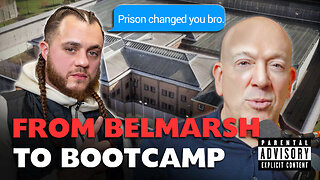 1:48:38
1:48:38
The Criminal Connection Podcast
1 day ago $0.46 earnedYUSEF BOUATTOURA Pro PT: Mean Streets of TOTTENHAM, Belmarsh to Bootcamp! (CRAZY Life Story)
9.8K1 -
 10:33
10:33
Silver Dragons
17 hours agoDealer Reveals 2025 Silver and Gold Prediction, Goals, & MORE!
8.25K6 -
 1:08:13
1:08:13
Trumpet Daily
20 hours ago $4.14 earnedThe Return of 45 - Trumpet Daily | Jan. 20, 2025
13.6K6 -
 1:16:47
1:16:47
BIG NEM
1 day agoWe Interviewed a 40 Year Old VIRGIN
19.5K2 -
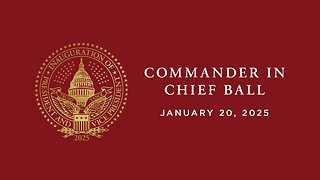 2:54:30
2:54:30
Donald J. Trump
13 hours agoCommander-In-Chief Ball
394K307 -
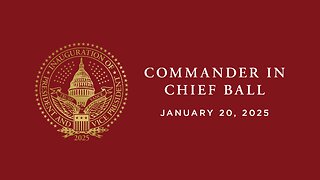 DVR
DVR
GOP
1 day agoPresident Trump Speaks at the Commander-In-Chief Ball
220K33 -
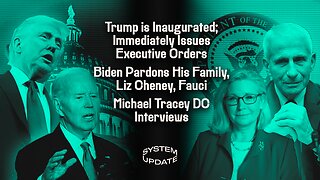 1:45:10
1:45:10
Glenn Greenwald
15 hours agoTrump is Inaugurated & Immediately Issues Executive Orders; Biden Pardons His Family, Liz Cheney, Fauci; Michael Tracey DC Interviews | SYSTEM UPDATE #392
209K199 -
 2:03:43
2:03:43
Kim Iversen
15 hours agoTrump’s Triumphant Return: Breaking Down Trump’s Bold 2025 Agenda | The TikTok Ban Backlash: Who Wins, Who Loses?
136K82 -
 3:45:23
3:45:23
Benny Johnson
16 hours ago🚨 Watch President Trump FREE January 6th Political Prisoners LIVE Right Now | Stadium ROARS
297K337 -
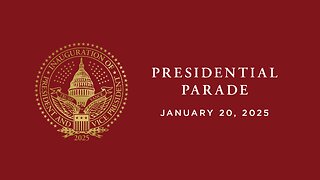 5:19:30
5:19:30
Donald J. Trump
19 hours agoDonald J. Trump Attends the Presidential Parade
635K453